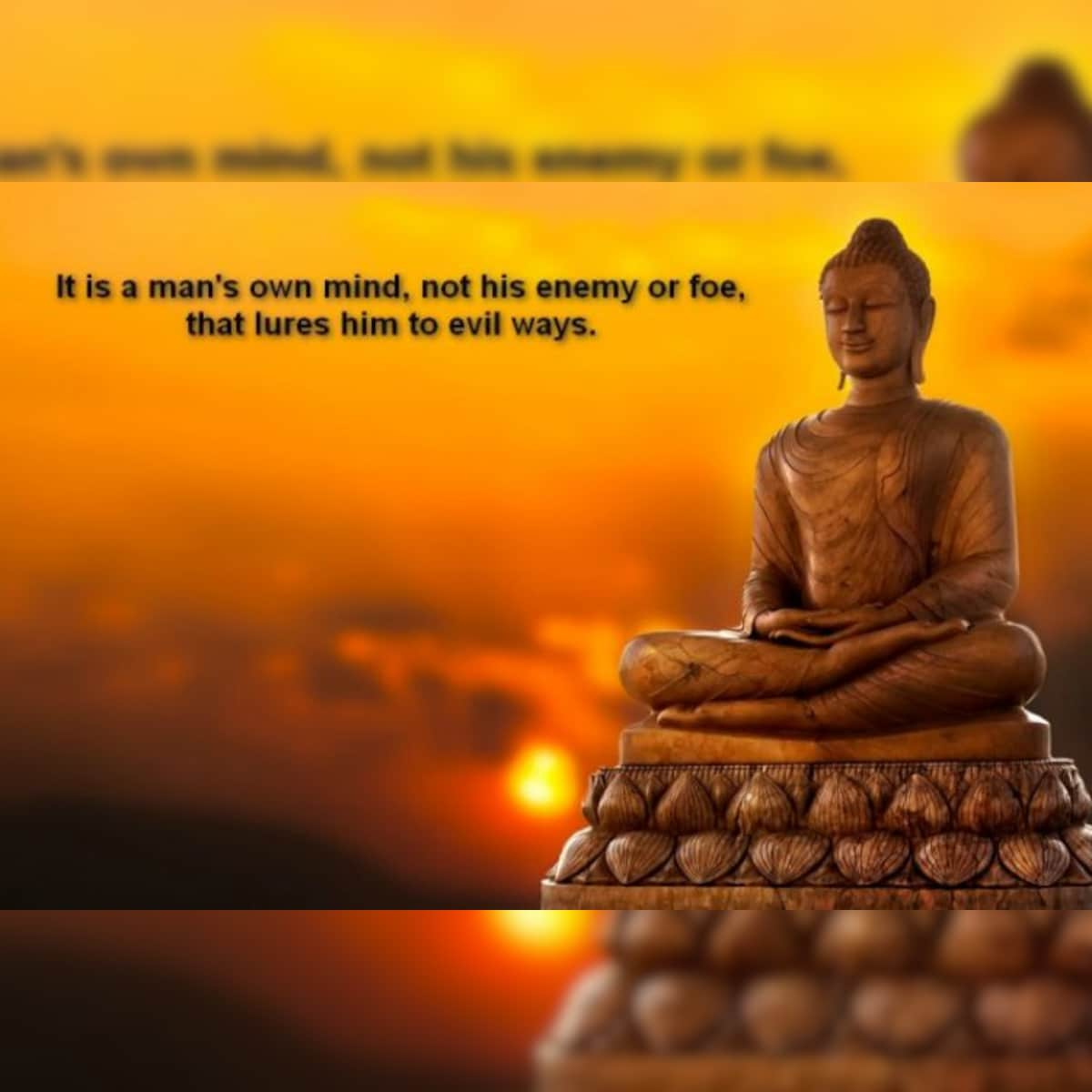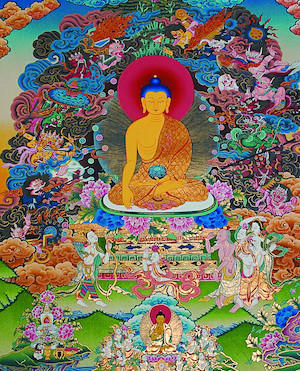Buddhism is often thought of as a religion, but it can also be seen as a philosophy. At its core, Buddhism is a set of teachings and practices that were developed by the Buddha, who was a historical figure that lived in ancient India around 2500 years ago. The Buddha's teachings, also known as the Dharma, focus on understanding the true nature of reality and finding a way to end suffering.
One reason that Buddhism is sometimes seen as a philosophy rather than a religion is because it does not have a central deity or deities that are worshipped. In many religions, believers pray to a higher power or divine being for guidance and support. However, in Buddhism, the focus is not on worshipping a deity, but rather on understanding and applying the teachings of the Buddha to one's own life.
Another reason that Buddhism is often seen as a philosophy is because it does not rely on faith in the same way that many religions do. Rather than accepting beliefs on faith alone, Buddhism encourages practitioners to question and explore the teachings for themselves, and to come to their own conclusions through direct experience and personal investigation.
In addition to its emphasis on understanding and personal experience, Buddhism also places a strong emphasis on ethical conduct and compassion. The Buddha taught that by following a path of ethical conduct and cultivating compassion, one can reduce suffering and find lasting happiness. This focus on ethical conduct and compassion is another aspect of Buddhism that sets it apart from many other religions.
In conclusion, while Buddhism has many elements that are similar to religion, it can also be seen as a philosophy due to its focus on understanding and personal experience, lack of central deities, and emphasis on ethical conduct and compassion. Regardless of whether it is classified as a religion or a philosophy, Buddhism offers a unique and profound set of teachings that have helped countless people find meaning, happiness, and freedom from suffering.
Buddhism

In the early evening, just zazen, in the middle of the night we sleep. For example, discerning things such as the length of the life-span of the universe is unskillful, while discerning things such as the nature of the body and mind is skillful. Wisdom has nothing to do with holding to this or that viewpoint. The various Buddhist traditions generally see Buddhist meditation as being divided into those two main types. You do get very dogmatic about this, Genryu. In the various graduated paths, this is usually presented as a practice which is taught prior to formal sitting meditation, and which supports meditation by weakening sense desires that are a nimitta. Not taken in, unshaken, that's how you develop the heart.
Why is Buddhism considered a religion and not a philosophy? : askphilosophy

Buddhism is a religion, in the sense, among other things, that it has Monks and Nuns, Monasteries and Temples, or places of Worship. The focus is on developing clear appearance and divine pride the understanding that oneself and the deity are one. We must all follow the laws of nature, not the ones that we ourselves create. What obscures our view of pur being in the world? Some scholars, like Bronkhorst, see the four dhyānas as a Buddhist invention. Rachel completed a PhD in Renaissance conceptions of time at Durham University. Just try playing the 'Metta chant' with the volume turned down.
Is Buddhism a religion or philosophy?

Although you should not jump to any conclusion here, clearly a Buddhist can say at this point that Buddhism does not believe in a creator God, an all-powerful being that punishes and rewards. This is why people like Albert Einstein and Dr. While I may occasionally feel it within me to be somewhat. The soul is one thing and the body another. But if religion acts as a societal glue it must necessarily be connected to political power…. Unfortunately, many such assertions do not pass what I call the 'victory or defeat? This attitude appears unacceptable to some, Buddhist, Christian and, even, atheists.
Buddhism is NOT a religion... — NewBuddhist

That was the Brahman belief system. One cannot both be a Buddhist and believe in a supreme creator deity, or some divine essence. People are more likely to conform to directions when the reasoning behind those directions has been explained. Unlike some religions, in which ceremonies must take place under instruction from a religious leader, Buddhists can pray and meditate either in temples or their own homes. When he did reference such a Deity, he never said they didn't exist, but that our beliefs about such things were incorrect in many ways.
Understanding Buddhism: 10 Reasons It's NOT A Religion

Some teachers have suggested that my psyche lacks some component, a capacity for faith. This is the driving force that set Buddhism apart from conventional religions. I understand, at the same time, the need that we experience for certainty. Posts must not only have a philosophical subject matter, but must also present this subject matter in a developed manner. A Buddhist monk deep in meditation, via WorldAtlas. It will never lead one to Liberation if it did the Buddha would have included it in his teachings , and none of us will ever live long enough to even find out.

.jpg)




.jpg)
